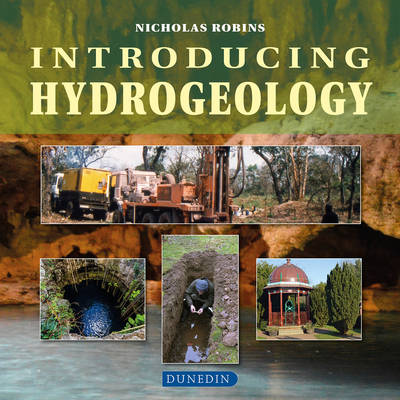
- Retrait gratuit dans votre magasin Club
- 7.000.000 titres dans notre catalogue
- Payer en toute sécurité
- Toujours un magasin près de chez vous
- Retrait gratuit dans votre magasin Club
- 7.000.0000 titres dans notre catalogue
- Payer en toute sécurité
- Toujours un magasin près de chez vous
Description
Hydrogeology is an important and vibrant sub-set of geology. It deals with the distribution and movement of water, groundwater, in the soil and rocks of the Earth. Groundwater transport is one part of the overall hydrological cycle; water is transferred by evaporation from the oceans into the atmosphere. Some falls to land as precipitation, some percolates underground, much of it to become groundwater. Groundwater travels from areas of high elevation to discharge points such as springs or to lower surface waters. On its way, it acquires its own distinct chemical signature, while its period underground can vary between only a few weeks to tens of thousands of years.
Hydrogeology interacts with a variety of diverse disciplines beyond geology, not least hydrology, climatology and socio-economics. Nick Robins describes the basic concepts of groundwater flow analysis in simple language and avoids burdening the reader with overmuch analytical detail. All facets of hydrogeology, physical and chemical, are described, so the book places hydrogeology in its important role, underpinning our increasing demands on the environment. A variety of topical issues are considered, including climate change impact, water scarcity, nuclear waste repositories and oil shale fracking.
As with other titles in the series, Introducing Hydrogeology will appeal to the non-scientist interested in learning more about this important topic; to those staring on or contemplating a career in hydrogeology; and to those studying related topics, such as civil engineering, who require a sound overview of this branch of earth science.
Spécifications
Parties prenantes
- Auteur(s) :
- Editeur:
Contenu
- Nombre de pages :
- 115
- Langue:
- Anglais
- Collection :
Caractéristiques
- EAN:
- 9781780460789
- Date de parution :
- 30-01-20
- Format:
- Livre broché
- Format numérique:
- Trade paperback (VS)
- Dimensions :
- 221 mm x 218 mm
- Poids :
- 340 g

Les avis
Nous publions uniquement les avis qui respectent les conditions requises. Consultez nos conditions pour les avis.






